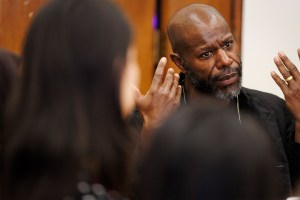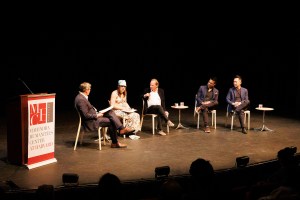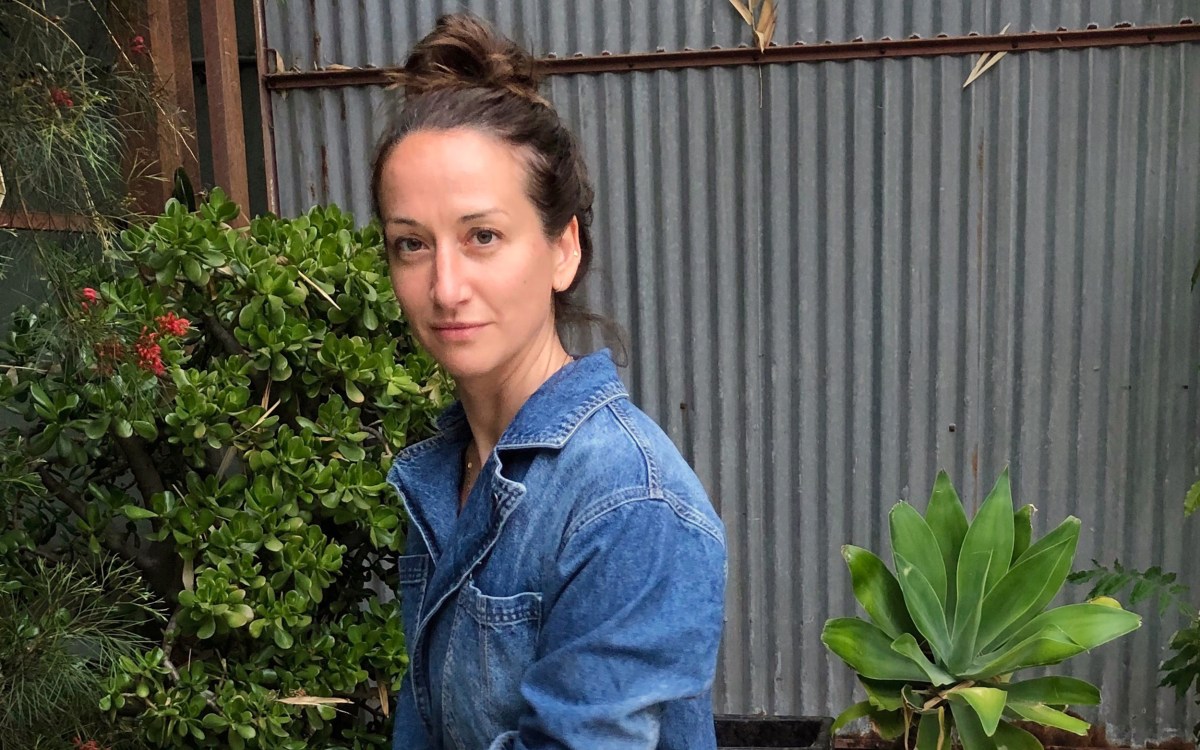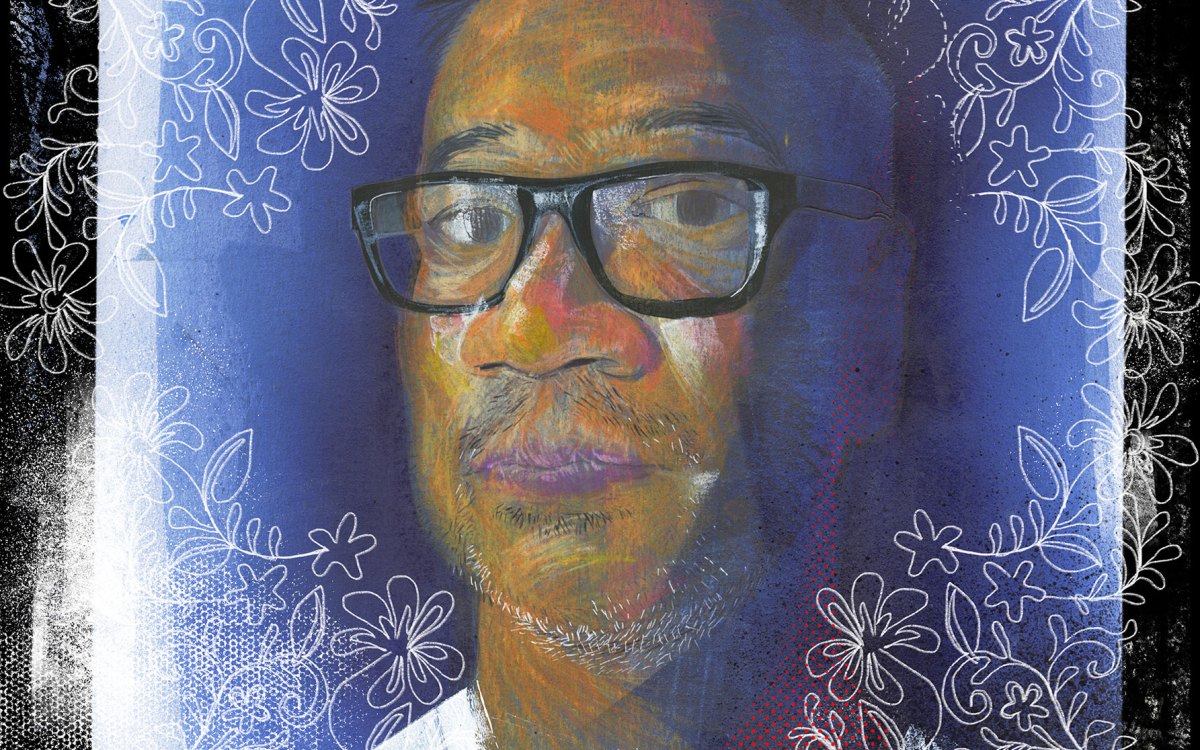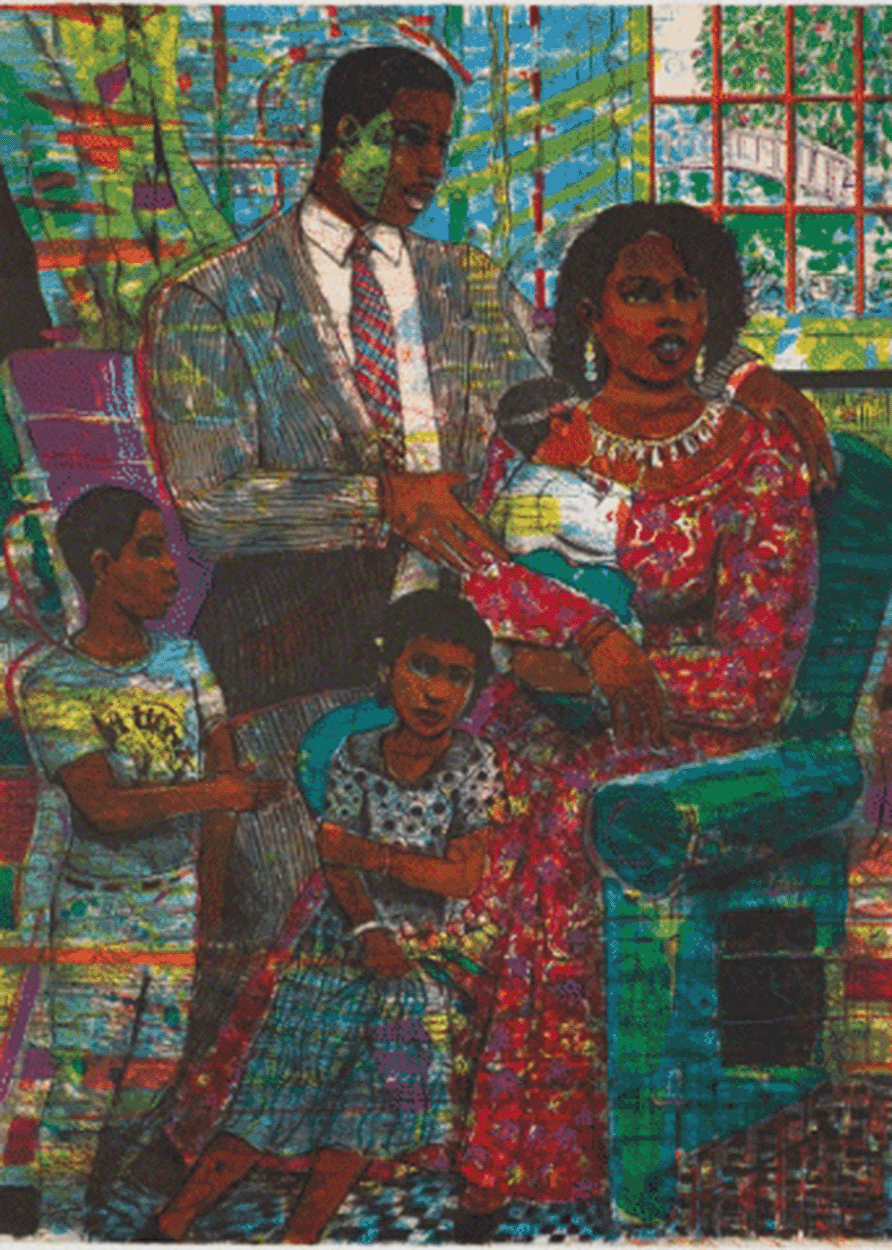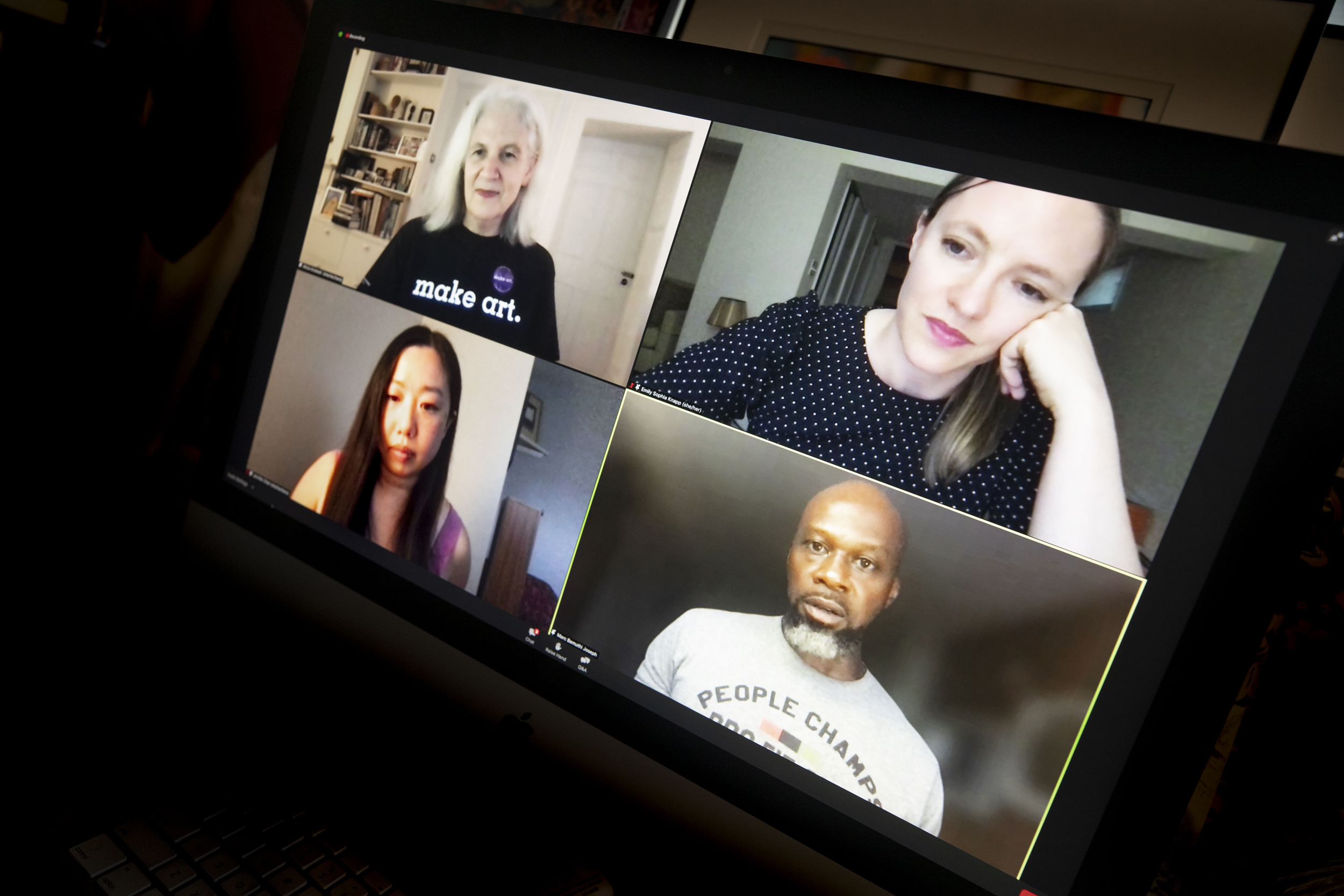
The panel discussion was led by Office for the Arts associate director for programming Alicia Anstead (clockwise from top left), and panelists Emily Knapp ’03, Marc Bamuthi Joseph, and Jennifer Chen ’11.
Kris Snibbe/Harvard Staff Photographer
Art for everyone
Panel tackles the need for antiracism programming, allyship
As an associate director for the Public Theater in New York City, Emily Knapp ’03 views herself as a doula, but one who, rather than helping mothers during childbirth, facilitates the delivery of artwork. And Knapp believes that an important part of that job for white allies like her who work in the equity, inclusion, and belonging space is being willing to learn at all times.
“For me, it’s really important to think of my role as being in support of their artistry as opposed to their artistry is doing something for me,” Knapp said at a panel hosted by the Office of the Arts and First-Year Arts Program on Aug. 11. “I am there in a really supportive role.”
The panel, called “A Conversation about Equity, Inclusion, and Belonging in the Arts,” addressed the arts community’s lack of diverse representation, systemic biases, and other prevalent exclusionary practices. Knapp was joined by fellow panelists Marc Bamuthi Joseph, vice president and artistic director of social impact at the John F. Kennedy Center for the Performing Arts, and Jennifer Chen ’11, general manager of the American Modern Opera Company (AMOC).
Antiracism work and allyship were at the center of the discussion, with panelists encouraging students to integrate antiracism at the foundation of their work and advising them how to become better allies to artists of color and the communities in which they live. College theater manager Dana Knox noted early on that the pandemic-imposed pause in the arts performances opened the door to antiracism programing that addresses underrepresentation and lack of access to opportunities for artists of color.
At the Kennedy Center, Joseph launched several antiracism initiatives, including investing $1 million in the local creative economy, connecting Black artists with antiracist organizing through the Black Culture Matters initiative, and commissioning young classical music composers of color.
Joseph challenged students looking to create art centered around antiracism principles to ask themselves a key question: How are you practicing allyship?
“If [art] doesn’t challenge you, it won’t change you.”
Marc Bamuthi Joseph, John F. Kennedy Center for the Performing Arts
“People often use the term performative allyship, and I have no problem with performing allyship,” he said. “You know, most of us here, we’re dancers, we’re actors, we perform. But you don’t perform without practicing. So, you have to perform allyship, but the secondary question, and maybe the more important question is, what is your practice rather than what are you performing?”
The poet emphasized that antiracism work must subvert racism at its systemic core. “If you use the phrase structural racism, then antiracism must be structural,” Joseph said. “If you say systemic racism, then you must be systemically antiracist.”
Knapp said the Public Theater has taken similar steps to practice allyship, including establishing partnerships with members of the wider community. “A beautiful thing to add to your practice is a belief in partners and partnership and the expertise of people who are very different from you,” she said.
“Seek out people who can help you understand something that you didn’t always understand,” even if that means reaching out to people outside of the arts, Knapp advised.
AMOC has taken a different approach to address issues of inclusivity and equity, Chen said. The company, a collective of 17 artists across disciplines, established a rubric to question, criticize, and comment on each other’s work. This has allowed company members to take a deeper look at how they present art, the art they fund, and how everything within the company works.
Chen encouraged students to ensure everyone is on the same page regarding their mission and value system when launching projects that aim to have antiracism principles baked into their core. AMOC took about nine months before it incorporated and an additional six months before going public. It was critical that all artists were on the same page about their values and how they would hold themselves accountable, Chen said.
Joseph also urged students to keep one thing in mind when making art: “If it doesn’t challenge you, it won’t change you.”

